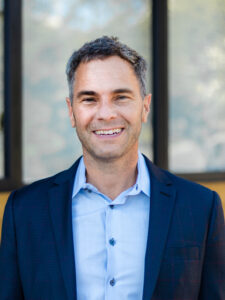- FOUNDER AND CREATOR OF SHAZAM
- SHAZAM IS APPLE’S 6TH LARGEST ACQUISITION – OVER 2 BILLION DOWNLOADS
- THREE-TIME STARTUP FOUNDER AND ADVISOR/INVESTOR TO STARTUPS
- FIRST EMPLOYEE AT GOOGLE RESPONSIBLE FOR MOBILE
- EARLY EMPLOYEE AT DROPBOX (FIRST 100)
- INVENTOR OF 12 PATENTS (ONE USED WITHIN GOOGLE ALGORITHM)
- TEACHES INNOVATION & ENTREPRENEURSHIP IN 4 ONLINE UNIVERSITIES
Quick Reference Card
AI, Attitude, Business, Creativity, Innovation, Inspiration, Leadership, Resilience
Domestic Keynote Fee Range*:
$25,000-40,000, Over $40,000
• Be inspired to imagine and then create new visions for the future
• Learn how innovation comes from not just an idea, but from a series of insights to overcome obstacles along the way
• Understand why true disruption requires both persistence and creative solutions
• Be urged to question the status quo and to sweat the details on the path to redefining the future
*Speaker fees vary based on event location, program duration and other factors, and are subject to change without notice. Please contact us for an accurate fee quote for your event.
 Chris Barton wanted a way to identify songs anywhere he heard them. There wasn’t one – so he invented an app called Shazam. Chris’s creation is nothing short of pure magic. Chris seeks to delight people by using technology to make seemingly impossible ideas come to life. Shazam is just one of them. It changed the way the world discovers music and laid the groundwork for the consumer AI industry we know today. In addition to creating Shazam, Chris holds twelve patents and played key roles in the early days of Google and Dropbox. Chris’s newest venture, Guard, aims to use AI to detect drowning in swimming pools – a never-before accomplished effort. In his speeches, Chris’s story and storytelling completely captivate audiences. He inspires people to make big things happen in their organizations – to create magic in defiance of the obstacles.
Chris Barton wanted a way to identify songs anywhere he heard them. There wasn’t one – so he invented an app called Shazam. Chris’s creation is nothing short of pure magic. Chris seeks to delight people by using technology to make seemingly impossible ideas come to life. Shazam is just one of them. It changed the way the world discovers music and laid the groundwork for the consumer AI industry we know today. In addition to creating Shazam, Chris holds twelve patents and played key roles in the early days of Google and Dropbox. Chris’s newest venture, Guard, aims to use AI to detect drowning in swimming pools – a never-before accomplished effort. In his speeches, Chris’s story and storytelling completely captivate audiences. He inspires people to make big things happen in their organizations – to create magic in defiance of the obstacles.